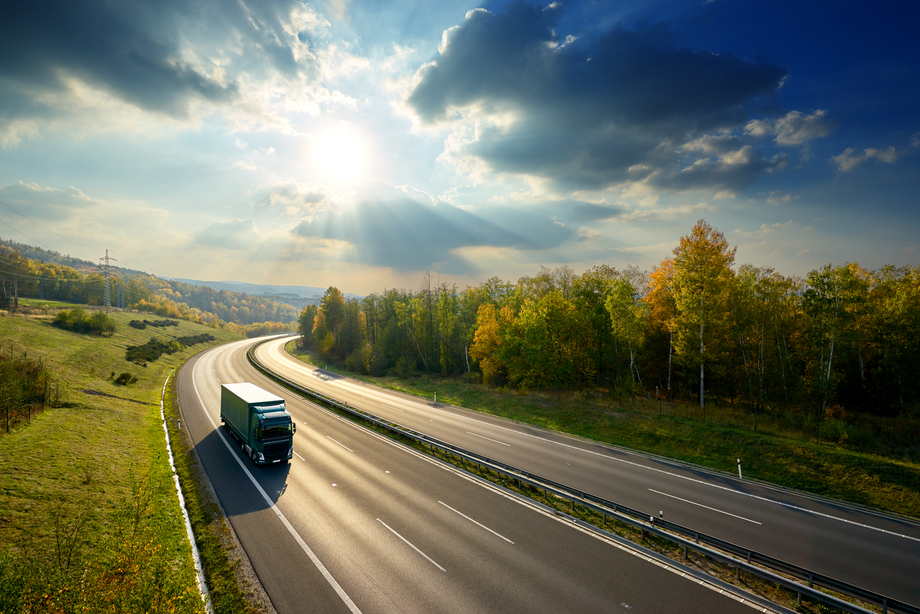Sustainable on-road transport is no longer an option, but an urgent necessity. In a global context in which emissions reduction and energy efficiency are priorities, OnTurtle reaffirms its commitment to the environment through various actions, aligned with the European objectives of decarbonisation of the transport sector.
On the occasion of World Environment Day, celebrated every June 5, we would like to highlight our main initiatives towards cleaner, more efficient and planet-friendly mobility.
Benefits of sustainable road transport
Sustainable transport offers clear benefits: it reduces emissions, optimises resource consumption and aligns with regulations such as the Sustainable Mobility Act. It also allows companies to anticipate market demands and the growing environmental awareness of customers and users.
Adopting a sustainable transport system therefore not only reduces environmental impact, but also improves operational efficiency on the road. At OnTurtle, we promote sustainable transport and mobility as part of our commitment to the future of the industry. That is why we are committed to alternative energies such as HVO and Bio LNG, real solutions that our customers already have in operation.
Alternative energies for cleaner road transport
Professional transport in Europe, especially heavy-duty vehicles such as trucks and buses, accounts for a significant share of greenhouse gas emissions in Europe. It is estimated that heavy duty vehicles are responsible for more than 25% of road transport emissions in the EU. The European Commission’s legislative proposal is precisely to reduce these emissions in order to achieve climate neutrality by 2050.
Along these lines, one of the pillars of OnTurtle’s environmental commitment is the incorporation of alternative fuels that help to significantly reduce the carbon footprint of road transport. An expanding offer that allows you to widen the range of possibilities for our customers, in addition to diesel. This is the case of HVO, which we already incorporated in 2023, and Bio LNG, our most recent commitment.
BioGNL: the renewable alternative to natural gas
In 2025 at OnTurtle, we made the leap to BioLNG (liquefied natural gas from renewable sources), with the first Bio LNG fuelling stations in Germany. Thanks to a clear expansion strategy, our network of BioGNL filling stations has now reached 55 locations in Europe. This constantly growing network responds to a growing demand for more environmentally friendly energy solutions for professional transport.
Bio LNG is a biofuel that is produced from organic waste and offers an emissions reduction of up to 80% compared to traditional fuel. Here you can find out everything you need to know about Bio LNG in terms of sustainability for professional transport.
HVO – an immediate alternative to diesel
Before Bio LNG, we at OnTurtle were also committed to renewable diesel. HVO (Hydrotreated Vegetable Oil) is made from vegetable oils and organic residues. Its use can reduce CO₂ emissions by up to 90% compared to conventional fuel. In this article we tell you what HVO is and how it works.
We have now strengthened our bio-diesel network with the integration of 71 HVO filling stations into our European network. This gives our customers access to a more sustainable alternative without the need to modify their engines, as it is fully compatible with traditional diesel, facilitating an immediate transition to a more responsible model.
Sustainability in our own service stations for on-road transport
At OnTurtle, not only do we facilitate the energy transition for our customers, with a network of stations that meet their various energy needs for more sustainable transport. But for years we have been applying the same energy efficiency criteria in our own facilities.
A clear example of this is our own service stations in Mercabarna and La Jonquera, where over the years we have been implementing renewable energy generation systems, such as the installation of photovoltaic panels. These structures not only cover part of the service stations’ own energy consumption, but also contribute directly to the reduction of pollutant emissions.
In this respect, since 2024, we have produced a total of 114,398 kWh, which represents a reduction in CO₂ emissions of 31,231 kg. This data reflects our real commitment to a more responsible energy model, and demonstrates that sustainability is also possible through the infrastructure we have. Specifically, our Mercabarna station has managed to produce 8,561 kWh (a reduction in CO₂ emissions of 2,337 kg); in La Jonquera, the figure is many times greater and reaches 105,837 kWh (equivalent to a CO₂ reduction of 28,894 kg).
Every kilometre counts for more sustainable on-road transport
At OnTurtle, we approach sustainable on-road transport in a holistic manner. It is not only about what fuel is used, but how energy is managed, what technology is implemented and what decisions are made on a daily basis in favour of the environment. Therefore, in addition to promoting the use of clean fuels and reducing our operational footprint, our en route services also promote actions such as:
- Optimising routes and waiting times to reduce unnecessary consumption.
- Digitising processes, to minimise the use of paper and improve efficiency.
- Collaborating with sustainable partners, creating a logistics network aligned with the same values.
At OnTurtle we work every day to be an active part of the shift towards more environmentally friendly freight transport. That is why we will continue to promote solutions that help us move together towards a more sustainable, efficient and planet-friendly model.


